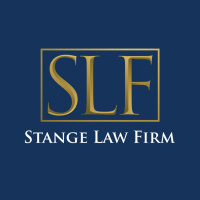 South Bend Child Custody Lawyers, Nebraska
South Bend Child Custody Lawyers, Nebraska
Includes: Guardianships & Conservatorships, Custody & Visitation
Not enough matches for South Bend Child Custody lawyer.
Below are all South Bend Divorce & Family Law lawyers.
Sponsored Lawyers
1-10 of 54 matches
Divorce & Family Law, Child Custody, Child Support
Going through a divorce or family law matter can be an emotional time. You may feel betrayed, lost, or overwhelmed. Having an attorney that can relate to you, and who focuses on divorce and family law, can make the process easier. Since our founding in 2007, we have dedicated our firm to the practice of divorce and family law because of the tremendous need for lawyers who focus on this area. We have since continued to grow and have over 25 offices throughout the United States. If you need help with a family law or divorce-related matter, our legal team can help guide you through the process. We have many offices in many local jurisdictions, which puts our firm close to you and your family. We have been ranked as one of the fastest-growing law firms in the United States by Law Firm 500. To schedule a consultation, you can contact us online today.
(more)Criminal, Felony, DUI-DWI, Domestic Violence & Neglect, Firearms
Attorney Tom Olsen handles criminal defense cases in Omaha, Douglas County and throughout Nebraska. With over 30 years experience, Tom is generally considered as one of the most competent and skilled criminal defense attorneys in the Omaha area and has been involved in the representation of clients involved in many of the more higher-profile criminal cases in the Omaha area over the past several years. Call 402-598-5789 to schedule a free consultation today.
(more)





